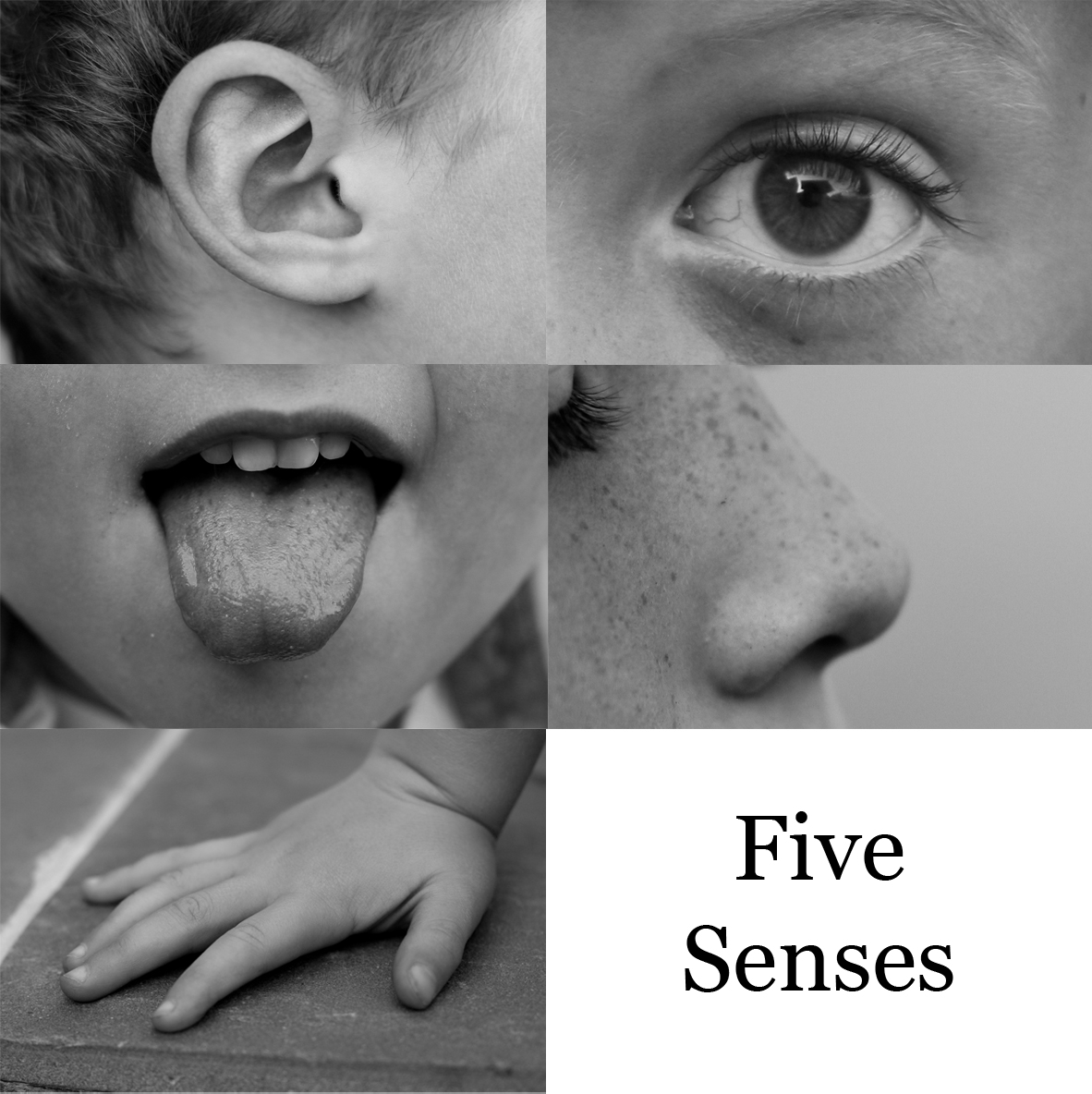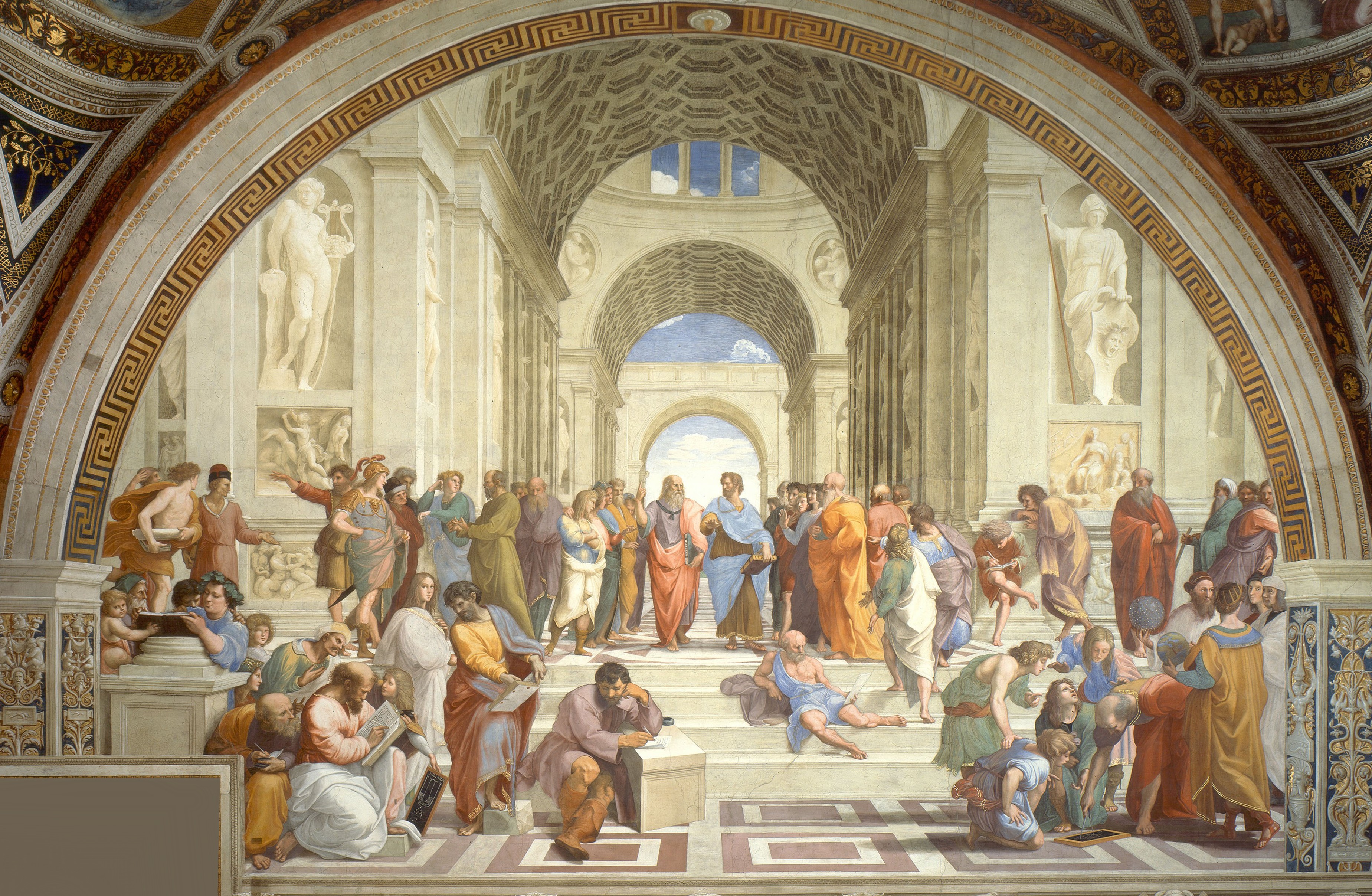(Thomas Aquinas, Summa 1:75:2, Reply 3)
[The soul is not a substance unrelated to the body, but rather is the form of the body, able to exist on its own, though imperfectly so. That the soul is distinct from the body, however, can be shown by several arguments: Reason, Reference, Qualia, & Free Will.]
So far we've come to know some more about the soul and how we relate to the world. But what are we? We're human, we're alive. We run, play, sleep, write poetry, fall in love, kick soccer balls, make movies, watch movies, eat, etc. We're active! (Sometimes, at least.)
But some of those activities are different than others. When a person kicks a ball, there's a visible motion. When a person thinks about soccer statistics, however, we don't see any accompanying motion, unless they are also mouthing it or typing or some other thing beyond simply thinking. And this idea, that some things are physical and some are not, is the idea behind the soul.
There's an important distinction to make before I go any further. While the mind involves all the parts laid out in the post about the mind, the soul includes more than that. The soul is the principle/structure/explanation behind all human activity, from eating to walking to composing metaphysical treatises in Latin. The soul is the organizational structure of material parts by which an animal (living material thing) executes its activities. In that sense, plants and animals also have a kind of soul, as they are similar to humans in a unique way by also being living things. This is why living things are called "animate" (the Latin word for "soul" is "anima"), and non-living things are called inanimate.
Notice right away that that kind of definition cuts the notion of Cartesian Dualism off right away, since the soul is necessarily related to the body in an essential way--the soul is just the structure the body has that makes it able to and actually be alive. When an animal dies, the soul is gone, by definition, since there is no longer any possible activity of the animal being performed.
But then we get into a tricky matter, because that last sentence is actually not without contention. Some people do say that at least the human soul survives bodily death. The fact that the body can lie before us and not be alive itself shows that the soul is something more than the body--though not necessarily able to exist on its own. Those who believe it is such a thing as can exist on its own do so mainly because of variations of a few basic arguments. These arguments themselves are not about the immortality of the soul--that'll be another post--but rather show that the soul, because it contains the mind, which itself contains the intellect, is a self-existent, immaterial thing.
1. Rational Thought
This was Aristotle's main issue with the idea of the soul being entirely the result of physical causes. If our brains are the sole cause of our thoughts, then our thoughts would be limited because there are physical limitations on the brain. If our thoughts are patterns/structures of something (neural networks might be the best description) based on patterns/structures exhibited by the things in the world, then because our brains can only have a finite number of finite patterns/structures they can contain or become, our thoughts would be limited in that way. The argument is that we do not in fact find such a limitation, but rather seem to be able to think about anything that is logically possible and finite--restrictions which would still apply even if there is an immaterial soul. Since we can do that, we must not be limited by the limitations of the brain or any other physically limited thing. And that would mean that we have an immaterial component in thought. Not that all soul-activity is inexplicable without recourse to immateriality, but that some part is, and therefore the whole must be, since it is one united thing. Think of it not like a mouth chewing, even though the whole body can't chew, but instead like the house in "Up" tied to balloons--if one part is floating, the whole thing is, because it is all unified in a relevant way. Aquinas explains this in depth in his Summas, but I neither have the space to give the explanation in detailed terms, nor the skill to do a better job than he has already.
2. Reason & Reference
This is a related argument, but one also more widely-used in contemporary philosophy. There are two aspects, but ultimately it is one and the same thing. When we think about things, we think about things. Think about that. Rocks are not "about" anything. Animals do not do anything "about" except walk "about something"--but that's really just another way of saying "around". But humans think "about" things--we refer to them, we mean them, we intend to say one thing, even if we accidentally say another. There is some kind of holding in one's mind of the thing being though that is not just a reaction, but a sort of turning towards it. That ability is the basis of this argument.
Hilary Putnam, in a famous article "Brains in a Vat" gives an example for what we mean by this "aboutness". He says that if an ant makes tracks in a sand dune such that they look like Winston Churchill, it is not actually a representation or depiction of him. The lines are not "about" him; they are accidentally arranged. But if a person sees Churchill, or photographs of him, and draws a picture of him, then it is indeed a representation or depiction--it refers to Churchill; the artist intends to convey him; it is "about" him. So how can our minds have this "aboutness" to them, when all of the components of the brain would be like the ants in the sand; themselves not rational? The argument would be that our minds must not be entirely dependent on the mind.
Similarly, C.S. Lewis gives an argument from two meanings of the word "because". When we think about things, we refer to them. It isn't just that thoughts come into our mind due to chemical, deterministic processes, but rather through rational thought, just as depictions of Churchill don't come from ants and sand, but intentional thought. If we say to a person something like, "Well you only think that because you are a Republican," or, "You say that because you're already a Christian anyways," we mean to invalidate the claim, as it is being produced not due to the rational content of the claim itself, but due to some other factor. That strongly implies that non-rational causes for rational claims render them invalid. But if we say, "If A equals B and B equals C, then A equals C because they are both equal to B," we mean something different--that there is a rational cause for the claim. "Socrates must be mortal because he is a man and all men are mortal," works logically, and is another example of this second type. But if we put this together, it means that if our thoughts are caused by non-rational things (the neurons firing in your brain), then the thoughts are not rationally valid. But the whole idea of this argument, of neuroscience, of philosophy, and of daily communication is that our thoughts are rationally valid, at least some of the time.
3. Subjective Experience
This argument is pretty simple. We not only know about color, but actually perceive it. Crazy stuff, right? To add a little more, the notion is that our experience of color or taste or anything like that goes beyond what the brain alone can do. Here's a commonly used illustration: Imagine Mary, a girl born and raised (somehow) in a room or house without anything of color in it; only black and white. Or perhaps she has glasses on all the time that remove color from the light. Or maybe it's only that there's nothing blue or purple. However it is set, she lacks at least some color experience. Now imagine she lives in an era where science has been perfected to the degree that all possible relevant information about sensation and perception of color is available, and she reads or is taught all of it. Now suppose we took off the glasses/let her out into the world, and she actually sees the colors for the first time in her life. Will she know something she didn't before? That is, is there something in the experience of color beyond the information aspect? It seems that there is some aspect that is the experience itself, different from the information about wavelengths, rods & cones, or neuroscience. That experiential component is known as "qualia", and this, too, is taken to show that not all aspects of the mind can be attributed to the brain. If we can know, in theory, everything about a brain, and all thoughts are are brain states, then we should be able to know everything about thoughts--but this seems to show that such is not actually the case.
4. Free Will
Finally, and perhaps more fundamentally contentious, is the argument from free will. If we have it, either we have it from the brain somehow, or from a soul somehow. If it's from the brain, either it is from deterministic physics, or indeterminate physics. But determinate causes don't make free choices, but determined effects. And the kind of indeterminate causes proposed in some quantum theories amount to utter randomness, which is also not free will, but insanity. So it seems like we have to go with it coming from the soul, and that's how it can be something determined, and not random, but determined by the nature of the agent, rather than some external forces, which would make it not free. So we can give up free will, sure, but then everything becomes unintelligible, since you can't choose what to believe or do or think or love or anything at all--and that's not life, that's like a kind of death! Life would be the biggest illusion of all if we are not free.
*~*~*~*~*~*~*~*~*~*~*~*~*~*~*~*~*~*~*~*~*~*~*~*~*~*~*~*~*~*~*~*~*~*
Based on those arguments, or rather, better formulations of them, people have long concluded that humans must have some aspect that is immaterial. This has serious implications, as far as where that aspect comes from, what other things like it might exist, how we learn and know things, what happens to it when the body dies, and how the distinction affects our morals--but I'll leave those to be thought upon by the reader, and dive in further in coming posts. For now, here's an article about how the complete splitting of body and soul can affect our morals, specifically in the area of sexual ethics. It's good to be a composite of body and soul!







.jpg)


